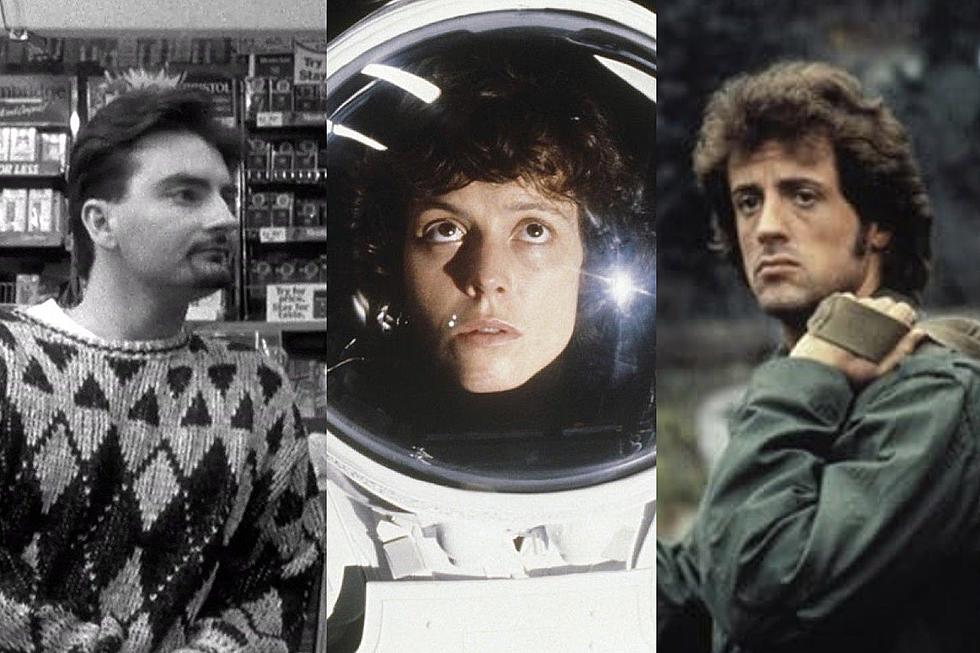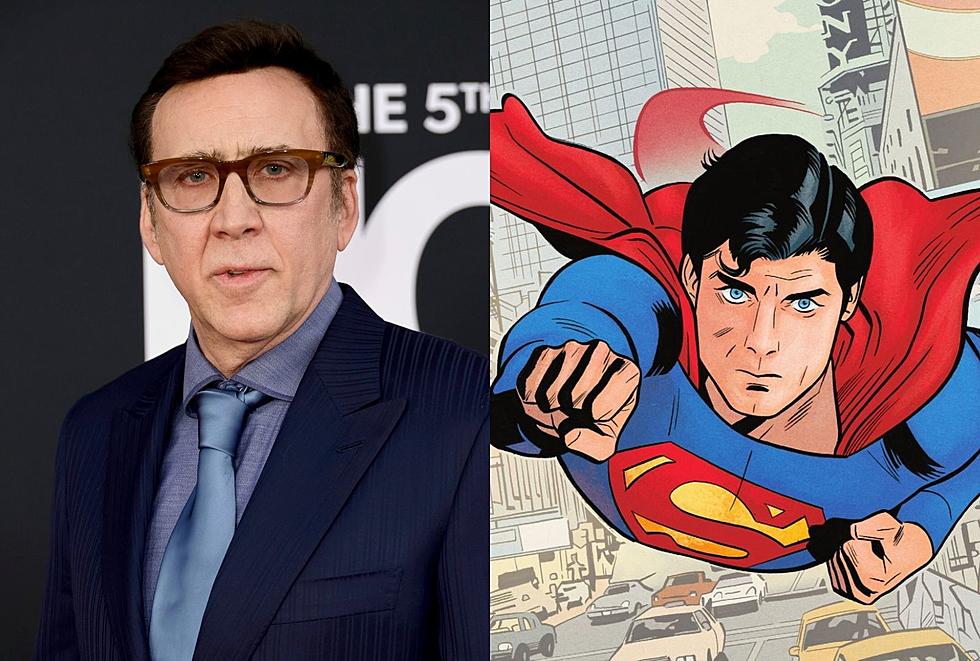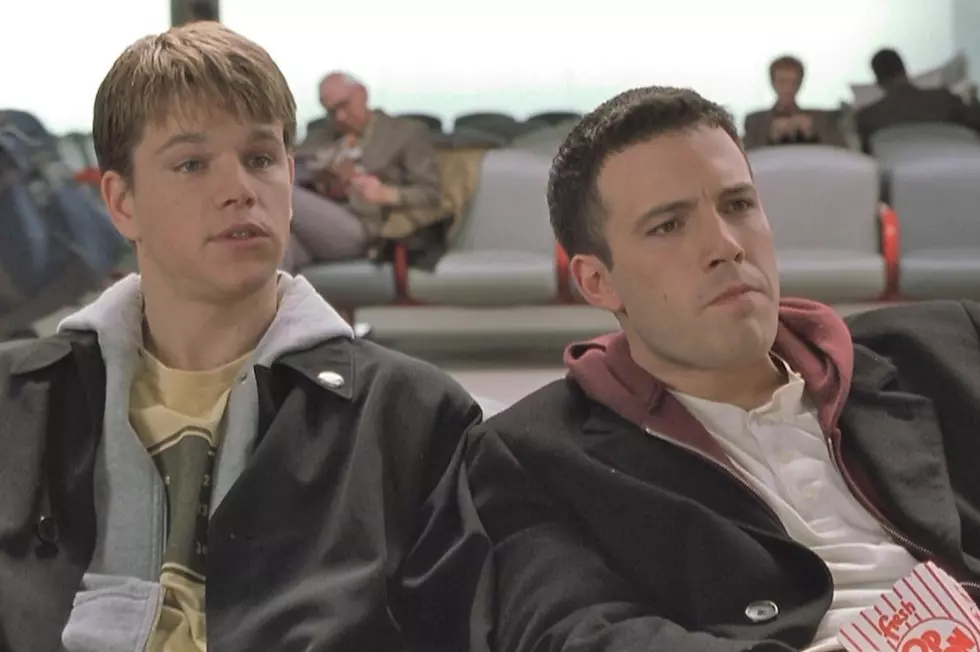
‘Spoilers With Kevin Smith': A Review of a Review Show
'Spoilers With Kevin Smith' premiered today on Hulu; in it, Kevin Smith buys tickets for a group of 50 fans to see the latest theatrical release, brings them back to his studio, and they discuss what they liked and what they didn't.
Not content to run on the idea of people tuning in to see what their peers have to say about a film, Smith beefs up the show with a weekly celebrity guest, a Criterion collection recommendation, and a cartoon short.
But first, a primer: Kevin Smith no longer likes film critics. The people who made him famous by praising 'Clerks' and 'Chasing Amy,' are now his enemies. He bemoans how film critics see films for free and have the nerve to dole out negative reviews, as if we aren't just as equally entitled to our opinions. He didn't use to dislike film criticism. Smith filled in for Roger Ebert on 'At the Movies' a few times while Ebert was ill. But once critics lashed out at 'Cop Out' -- a for-hire directorial gig that Smith didn't even write -- something changed. The guy who used to be able to chuckle about his own missteps in filmmaking became sensitive to film criticism and started bashing critics for negative reviews.
He is a man with a grudge, and he used that grudge as the genesis for 'Spoilers' because he thinks anyone can be a film critic and that it doesn't take a particular set of skills or thoughtfulness.
As the show begins there is a cartoon to explain what it's all about. "Just like normal people we all bought tickets to see the show," his voiceover states. We get it, you don't think critics are normal people and you think only someone who paid for a ticket to a movie is entitled to talk about it. Smith goes on to describe the show as a "no holds-barred gabfest," implying rather candid discussion.
This week's film is 'Snow White and the Huntsman,' starring Kristen Stewart, Charlize Theron, and Chris Hemsworth in a visually stunning re-telling of the classic fairytale.
As expected, the audience is filled with Kevin Smith devotees and people who are just happy to be on television for a few minutes. They aren't particularly eloquent, but they aren't writers. They're just your average movie-goers.
One guy thinks the movie isn't for him because he's a man, but he says he rather enjoyed it regardless. Here's where things could get interesting, by exploring how the general public -- unfettered by reviews and the notion of critical analysis -- engages with film. Coming from a critical standpoint, it's interesting to watch, but it's not the reason why the show exists. 'Spoilers' has the unwitting capacity to inadvertently examine the pedestrian motivations for seeing movies and how average people process them. Smith may have clumsily and accidentally stumbled upon something compelling, which is like a metaphor for his entire career.
Unfortunately, only about seven or eight minutes of the show is spent discussing the film. A handful of audience members get to explain why they liked or didn't like the movie, and Smith riffs with them humorously. One guy says he's easily distracted because he's fat, and then proceeds to critique Kristen Stewart's mannerisms. Another audience member wonders how anyone could think Stewart is the fairest in the land, unless they were blind. 'Spoilers' is far from anything that should provide thought-provoking societal insight, but these comments are indicative of a larger cultural issue with appearance, in which we find it too easy to judge those who are famous because, as we like to think, they've laid themselves bare for the entire world to judge and thus have given up their claim to humanity.
If anything, these are the comments that are the most interesting. We constantly question our beauty-obsessed culture and the prevalence of sexism, and here's a small example of typical American chatter that proves that these sentiments exist casually in every day society.
I know Smith is trying to say "anyone can be a critic," but he's proving here why he's wrong. We do ask our friends for movie advice because we want the opinions of those we trust -- people whose likes and dislikes closely align with our own. The concept here seems to be "a bunch of people like your friends tell you why they liked or didn't like a movie," which Smith thinks is better than a film critic carefully, deliberately articulating their opinion of a film -- but film criticism isn't this reductive idea of whether a film is, like, totally awesome or really bad. Film criticism is deconstructing the elements that go into the making of one film, weighing the sum against the parts, and finding ways to express how we, the critics, processed that film in particular. The basic purpose of film criticism, for the general public, is to help them decide whether or not they should see a film, but for those of us who actually write about film, it's not about that. It's about sharing the way we processed an experience so we can commiserate or empathize, and reading the work of our peers to see things differently, even if we don't agree. We consume, we digest, we learn.
Smith doesn't understand that. For the sake of argument we have two kinds of critics: the critic as film scholar, who loves cinema and uses creative writing to craft a response to a film (one form of expression responds to another), and the critic as some guy who tells you whether a movie is good or not, and whose sole purpose is boiled down to a yes or no. Smith doesn't seem to acknowledge that the former exists.
The show is harmless, and it certainly doesn't herald the end of film criticism. The only issue present here is that Smith's motivations for creating the show are vindictive, like he's trying to prove that film critics are wrong. If he had simply created the show based on the idea that people enjoy movie recommendations from their peers, I might feel less bias in reviewing the show. As it stands, it seems that he inadvertently lucked into a potentially interesting idea based on a grudge.
'Spoilers' panders to the people who watch movies solely for the purpose of entertainment -- not to learn, not to experience, and not to dissect and process. These people want to watch some movies and have a good time, and they represent the majority of America -- all of which is totally okay. Not everyone wants to be a critic or watches films with a critical eye, and Smith is right -- most people aren't reading reviews for the same reason a cinephiles or fellow critics read reviews. Most people are just trying to figure out if they should pay to go see a movie. I'm not going to get angry when my mom sees 'Snow White and the Huntsman' and doesn't take away the same themes I did of beauty as currency and a male-driven culture that foments the same madness in women that it later fears. She may not be able to discern any of that, but that doesn't make her any less deserving of sitting in the theater and enjoying a film in her own way.
As film critics and cinephiles, we are a little elitist. We have specific tastes that have been finely cultivated over the years. We don't just watch movies -- we absorb them. But we can't sneer at people who just want to sit down and catch a Michael Bay flick because they want to see some crap get blown up. Their interests may not align with our own, but that doesn't make them stupid.
If there are any complaints to be had with 'Spoilers,' it's the lack of film discussion in favor of bringing in a celebrity guest -- this week it's Carrie Fisher -- and having them sit on a throne (celebrity worship made tangible; the universe is collapsing in on itself) for an interview that has nothing to do with the film the audience watched that week.
Hulu's synergy allows Smith to promote a different Criterion title every week, though shouldn't he find a title that thematically matches the theatrical release they're discussing? He suggests Jim Jarmusch's 'Stranger than Paradise,' but it's little more than a random film pick. It would be more interesting -- and relevant -- if he took the time to thoughtfully choose a title that's more in keeping with the film of the week.
At one point during the Criterion pick, Smith says "maze on scene" when he means to say "mise en scene," which elicited a huge laugh on my end.
Each week the show will end with a short cartoon -- an animated version of a small portion of one of Smith's podcasts, and a direct rip-off of 'The Ricky Gervais Show.' A little unsolicited advice: Drop the celeb interviews and the cutesy cartoons in favor of more relevant material.
More From ScreenCrush









